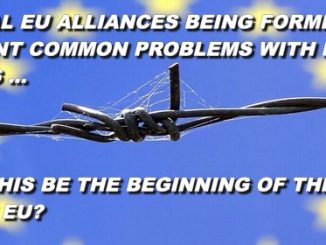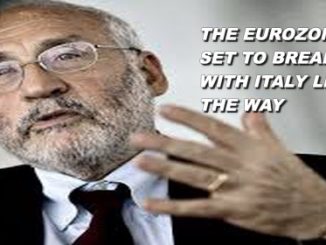
By ERIC MAURICE
BRUSSELS, TODAY, 09:29
The new British prime minister, Theresa May, took office on Wednesday (13 July) amid indications she might not be an easy partner for the EU in talks to organise the UK’s exit from the bloc.
In phone talks with German chancellor Angela Merkel, French president Francois Hollande and Irish prime minister Enda Kenny, she said the UK would “need some time to prepare” for Brexit negotiations.
She added she hoped the talks “could be conducted in a constructive and positive spirit”, according to her office.
But EU leaders have started to put pressure on her to trigger Article 50, the procedure to exit the EU.
Hollande “repeated his desire that negotiations for Britain’s exit from the European Union should be launched as quickly as possible”, a statement from his office said.
In his congratulation letter to May, European Commission Jean-Claude Juncker said that the UK and the EU had to “address soon” the “new situation” created by the Brexit vote on 23 June.
He added he looked forward to learning about May’s “intentions in this regard.”
On Sunday, Merkel had told Germany’s ZDF channel that “the decision has been taken … and the next step is to invoke Article 50.”
In an interview with the Polish weekly Politiyka, European Council president Donald Tusk said on Wednesday that “no-one should be seething with desire to punish, humiliate [the UK] for what they have done to us”, but he added that “we cannot let them profit from Brexit, as that would be lethal for the EU”.

Jean-Claude Juncker, President of the EU Commission
‘Bold new positive role’
In her first statement as prime minister, Theresa May focused on domestic issues and did not develop her views on Brexit.
“We are living through an important moment in our country’s history. Following the referendum, we face a time of great national change,” she said.
“I know because we’re Great Britain, that we will rise to the challenge. As we leave the European Union, we will forge a bold new positive role for ourselves in the world, and we will make Britain a country that works not for a privileged few, but for every one of us,” she added.
“That will be the mission of the government I lead, and together we will build a better Britain.”
May, who is often described as a “reluctant Remainer” because she opposed Brexit but did not really participate in the referendum campaign, appointed several eurosceptic and “Brexiteers” in her cabinet.
Eurosceptic Philip Hammond, who was foreign secretary, has been appointed chancellor of the exchequer and will defend the City of London’s interest in the future exit talks.
Brexiteer Liam Fox is the new international trade secretary, at a moment when Britain will have to negotiate new trade deals as it leaves the EU. The home office went to Amber Rudd, a Remain supporter.
‘Retro-nationalists’
Two high-profile appointments could complicate relations with the EU, however.
In a surprise move, May appointed Boris Johnson as foreign secretary. Johnson was a leader of the Brexit campaign who gave up running for prime minister amid Tory part infighting.
Johnson, who will make his first EU appearance at a foreign ministers meeting next Monday (18 July), is not a popular figure in Brussels.
Last week in the European Parliament, European Commission president Jean-Claude Juncker said that Johnson was part of a group of “retro-nationalists … not patriots”.
Johnson is known in the EU capital as a former Daily Telegraph journalist who fuelled euroscepticism in the UK with inaccurate and sometimes fabricated stories.
As an MP and former London mayor, he is famous for his gaffes.
Continue reading here
ER recommends other articles by EU Observer




